Discover Psychobabble
Psychobabble

Psychobabble
Author: Hannah Spier, MD
Subscribed: 33Played: 965Subscribe
Share
© Hannah Spier
Description
Psychiatrist analyzing how cultural trends and modern therapy incentivize dysfunction.
hannahspier.substack.com
hannahspier.substack.com
74 Episodes
Reverse
In this episode of Psychobabble, I’m joined by Dr. Carrie Gress, author of The End of Woman: How Smashing the Patriarchy Has Destroyed Us. We begin by exploring the pathologies of early feminists and how their personal struggles shaped the movement’s ideology, before delving into feminism’s surprising Marxist roots. Dr. Gress reveals how feminist leaders adopted communist tactics like emotional manipulation and class warfare, reframing gender roles into a narrative of victimhood and oppression. Together, we discuss how these ideologies have damaged families, femininity, and mental health, leaving a lasting impact on society.Get your nails done to perfection and get in shape at this luxury gym while ordering your stunning new custom made art piece for your home with a discount using the promocode “psychobabble podcast” - Check it out by clicking below: This is a public episode. If you'd like to discuss this with other subscribers or get access to bonus episodes, visit hannahspier.substack.com/subscribe
This is a free preview of a paid episode. To hear more, visit hannahspier.substack.com🎧 The full audio remains freely accessible to all subscribers — simply press play above.🎥 To enjoy the complete video episode, please consider upgrading your subscription.If you find value in the preview, becoming a paid subscriber not only grants you full access to this and future episodes, but also directly supports the time and care I invest in this work. Your support enables me to continue creating meaningful content, and I’m deeply grateful for every reader who chooses to be part of that!Feminism was never about equality—it began with resentment and moral superiority, not rights. From Elizabeth Cady Stanton to modern activists, the movement pathologized masculinity and tore down femininity, not to uplift women, but to unseat men. While feminists parade around with slogans, they stay silent on real female suffering. Meanwhile, women drowning in career ambition come to therapy not with disorders, but with lives built on lies. The truth is, many don’t need healing—they need to hear what no one dared to tell them.This episode is an interview I did with the dutch outlet Nieuw Rechts (New Right), and since I found it was such a good conversation—with questions we so often encounter regarding feminism—I thought it was worth sharing as an episode of Psychobabble. To all my Catholic listeners, our heartfelt condolences for your loss with the passing of the Pope; may resolution be close at hand.
In this video, I walk through three everyday patterns in which narcissistic traits are reframed as vulnerability, self-awareness, or moral superiority and therefore escape recognition altogether. From self-diagnosis culture to parenting ideology, these behaviours are often praised rather than named appropriately.I also make an important distinction between Munchausen by proxy and the narcissistic mother, two dynamics that are frequently conflated, but psychologically and motivationally very different.This is not about demonising women or dismissing genuine mental health struggles. It’s about understanding how certain traits gain social immunity by wearing the language of care, suffering, and insight, and why that makes them so difficult to name.Episode Chapters: 00:00 Why This Is Never Called Narcissism02:18 Narcissism That Looks Like Vulnerability06:12 Self-Diagnosis as Status and Shield12:04 Munchausen by Proxy vs. the Narcissistic Mother18:47 Gentle Parenting and Moral Superiority25:36 Why This Pattern Is So Hard to NamePsychobabble Insider Interview: The Four Horsewomen of Modern FeminismA conversation with David Maywald on misandry, gamma bias, gynocentrism, and gaslighting, and how these cultural forces shape therapy culture, family dynamics, and emotional double standards.Upcoming Live SessionThis Saturday, 31st January at 2 PM Eastern, I’ll be hosting a live clinical case session with Luella Jonk, PhD, on couples therapy:“When She Says She’s Done.”A real-time analysis of emotional withdrawal, shutdown, resentment, and what actually happens in relationships when one partner disengages. Please join in the conversation! This is a public episode. If you'd like to discuss this with other subscribers or get access to bonus episodes, visit hannahspier.substack.com/subscribe
Therapists can’t say no to women, psychiatry won’t protect its categories, and TikTok has turned serious disorders into identity accessories.In this video, I walk you through a proper differential diagnosis and show why the behaviours commonly labeled “AuDHD” are not autism, not ADHD, and not neurodevelopmental at all. 0:00 — The rise of AuDHD: diagnostic Frankenstein1:03 — The AuDHD Differential Diagnosis1:29 — Why this isn’t autism3:51 — Masking becomes an unfalsifiable excuse5:40 — Meltdowns, “stimming,” anxiety: misdiagnosis exposed8:04 — This isn't AuDHD, it's borderline behaviour10:03 — The gender inversion comorbidity split 14:53 — The death of differential diagnosis👉Missed the live clinical case session? You can watch the full recording here: This is a public episode. If you'd like to discuss this with other subscribers or get access to bonus episodes, visit hannahspier.substack.com/subscribe
This episode sits very deliberately at the “how do I deal with this?” level. It’s for people who find themselves repeatedly destabilised in relationships marked by manipulation, emotional volatility, and confusion — and who are tired of being told to simply communicate better, be more empathetic, or search for faults that aren’t actually there.As the year comes to a close, I wanted to write a brief note about Psychobabble. What many of you have responded to most strongly, and how I’m shaping the project going forward.What I’ve enjoyed most over the past weeks, especially through the live sessions, is how concrete and personal these conversations have become. When people bring real situations, real patterns, real moments of confusion, the psychological mechanisms stop being abstract. They become recognisable. And once they’re recognisable, they become manageable.That experience has pushed me to think carefully about how Psychobabble should evolve.All essays and podcast episodes will remain free on Psychobabble — orientation pieces, cultural psychology, and broader analyses that help make sense of what’s happening around us. I want the ideas themselves to circulate widely, and that won’t change.Paid Psychobabble, however, is becoming the place where we go deeper together.This is where we’ll work carefully through psychological mechanisms as they actually present in real life. Going forward, you’ll have access to twice‑monthly live clinical case sessions — a single, ongoing space where we work through real (composite and anonymised) cases tied to recent essays and episodes, take questions, and focus on precision. You’ll have access to the full recording after, in case you missed the session.In addition, the paid tier will include in‑depth, members‑only interviews with academics and authors that expand on the clinical and cultural themes, but differ from the regular public episodes.If you’re a paid subscriber, nothing is being taken away. What’s changing is focus and intentionality. I want to create a clearly defined space for shared investigation and practical understanding. Where clinically specific material — the kind that helps people orient themselves in difficult, personal situations — can be handled properly, with context and care.I’m genuinely excited about this direction! The live sessions have shown me what becomes possible when this work is done in a more contained, collaborative way and I’m looking forward to building that out further in the coming year.To those of you who read, comment, restack, share, challenge, and support this work — whether as free readers or paid subscribers — thank you! I wish you a thoughtful and steady start to the New Year.Warmly,Hannah This is a public episode. If you'd like to discuss this with other subscribers or get access to bonus episodes, visit hannahspier.substack.com/subscribe
Welcome to the Psychobabble Christmas Special — and to the most dangerous game on the internet: Can You Think Like a Feminist?I brought three of my favorite anti-feminist friends — Janice Fiamengo James L. Nuzzo Tom Golden — and challenged them to guess which Reddit comments from r/TwoXChromosomes were real…and which ones I wrote. Chaos, confusion, despair and an alarming amount of accuracy ensued. 👉 Join the bonus round on Substack by becoming a Psychobabble Insider. That also gets you into this Saturday’s live discussion with Carrie Gress about her new book Something Wicked — trust me, you don’t want to miss this one. This is a public episode. If you'd like to discuss this with other subscribers or get access to bonus episodes, visit hannahspier.substack.com/subscribe
In this episode I speak with Rob Henderson author of Troubled and originator of the concept luxury beliefs: ideas that raise the status of the elites while harming the people with the least margin for error.But today we look at something he’s rarely asked to unpack: the female side of luxury beliefs.00:00 – Introduction & Who Is Rob Henderson?01:13 – What Luxury Beliefs Really Are02:17 – Are There Female Luxury Beliefs?04:08 – COVID Softness & Lowering Standards06:55 – Feminine Teaching Norms and Real-World Harm09:03 – Learning Loss: Who Paid the Price?12:06 – Daycare, Working-Class Mothers & Elite Hypocrisy13:09 – “Walk the 50s, Talk the 60s”18:13 – Compassion in Public, Authoritarian at Home22:08 – “All Families Are Equal” as a Luxury Belief30:44 – Marriage Collapse & Class Inequality31:08 – Rob’s Upbringing and the Need for Structure32:36 – Would Conscription Fix Fatherlessness?37:21 – How Female Norms Shape Male Mental Health39:01 – Dani Slikowski & Elite Female Competition40:18 – The Impossible Standards Set by Elite Women42:49 – “Men Should Be More Emotional” as a Luxury Belief44:04 – Does Feminism Hurt Women the Most?47:29 – Boys Are More Hurt by Instability Than GirlsUpgrade, become a Psychobabble Insider and follow us over to the extended conversation! You will also have access to the full Psychobabble gallery, the chat, live streams, more essays and more exclusive insights! This is a public episode. If you'd like to discuss this with other subscribers or get access to bonus episodes, visit hannahspier.substack.com/subscribe
A cultural and clinical blind spot: the rise of female-coded Cluster B traits. Why do so many go undiagnosed? Why has misbehavior been rebranded as “trauma”?In this episode I break down how ideology, therapy culture, and social media have distorted our understanding of female pathology and why it matters more than ever.Join me for the Live Q&A this Saturday 1 PM ET—I’ll take your questions. Upgrade to joing the Live and to watch the bonus video below! This is a public episode. If you'd like to discuss this with other subscribers or get access to bonus episodes, visit hannahspier.substack.com/subscribe
In this episode, we trace the evolution of Women’s Studies — the ideological factory floor where feminist theory manufactures its ever-expanding vocabulary. From the early days of academic grievance studies to today’s buzzwords like microfeminism, hermeneutic labor, and kin-keeping, we examine how each new term tries to keep the ideology alive in a world that has stopped taking it seriously. What supposedly began as a movement for equality has become a language of perpetual victimhood and we’re unpacking how that happened, one feminist neologism at a time.👉 Click below to continue the conversation — upgrade and become a Psychobabble Insider for access to exclusive bonus episodes, live video sessions, in-depth essays, and our private community chat. This is a public episode. If you'd like to discuss this with other subscribers or get access to bonus episodes, visit hannahspier.substack.com/subscribe
This is a free preview of a paid episode. To hear more, visit hannahspier.substack.comIn this bonus segment for Psychobabble Insiders, we continue our decipering of feminist jargon. This time focusing on the “labor” terms that turn everyday acts of love, thought, and care into political grievances. From hermeneutic labor to kin-keeping and emotional labor, we explore how feminism has rebranded connection as exploitation and domestic life…
One in four American adults is now estranged from their parents, and most aren’t cutting contact over abuse, but ideology. In this conversation with Noelle Mering author of Awake, Not Woke and the forthcoming No Contact, we discuss why so many young adults are severing ties with family. Upgrade and become a Psychobabble Insider, get full access to more content, bonus material and live sessions today! This is a public episode. If you'd like to discuss this with other subscribers or get access to bonus episodes, visit hannahspier.substack.com/subscribe
In this Psychobabble episode with Edward Dutton, we explore how left-wing narratives manifest in mental health issues, and why wokeism may function as an adaptation to societal decline. Together, we discuss intelligence and IQ, the decline of cognitive ability, and the curious case of “woke eugenics”—a new form of social Darwinism shaping genetic and cultural health. Dutton closes with predictions for the future of the UK and Europe in light of these forces.Edward Dutton is a researcher based in Oulu in northern Finland. Born in London in 1980, Dutton read Theology at Durham University before completing a PhD in Religious Studies at Aberdeen University in 2006. He was made 'Docent' (Adjunct Reader) of the Anthropology of Religion and Finnish Culture at Oulu University in 2011. In 2012, however, Dutton made the move to evolutionary psychology. Since then, Dutton has published in leading psychology journals including Intelligence, and Personality and Individual Differences. He has been a guest researcher in the Psychology Department at Umeå University in Sweden and is academic consultant to a research group in the Special Education Department at King Saud University in Riyadh. In 2020, he was appointed Professor of Evolutionary Psychology at Asbiro University, a business-focused university of applied sciences in Łódź, Poland.👉 Click the link to keep the conversation going with us as a Psychobabble Insider—where members get access to exclusive discussions and deeper dives. This is a public episode. If you'd like to discuss this with other subscribers or get access to bonus episodes, visit hannahspier.substack.com/subscribe
In this special joint episode of Psychobabble and Men Are Good, Tom Golden, Janice Fiamengo, and I take on The Diary of a CEO’s viral “feminism debate” featuring Louise Perry, Erica Komisar, and Deborah Frances-White.This debate has racked up millions of views across one of the world’s most influential podcast and YouTube platforms. With over 12 million subscribers and more than a billion streams, host Steven Bartlett commands global reach and cultural clout. It was framed as a bold debate on feminism and widely sold as a serious “clash of ideas.” A feminist reckoning. But we had to ask: was it really? Should we feel grateful to feminism—if so, for what? Is feminism something that started good and went bad? Are we seeing a pendulum swing? We also break down the episode’s obsession with autonomy, the cult of consent, and why “what women want” is the wrong foundation for a social ethic. 👉 Click below to join the rest of the conversation—where it really heats up. This is a public episode. If you'd like to discuss this with other subscribers or get access to bonus episodes, visit hannahspier.substack.com/subscribe
In this episode of Psychobabble, I sit down with developmental psychologist Dr. J.D. Haltigan to talk about his personal experiencees and observations of how psychology has drifted from science toward ideology. Once committed to objectivity, the discipline is now increasingly shaped by hyperfeminization, social constructivism, and political activism.We discuss:* How woke ideology has infiltrated mental health research and academia* The erosion of diagnostic categories in psychiatry* The clash between objectivity and “lived experience”* Why social media is fueling ideological capture* What a post-progressive psychology could look likeThe conversation doesn’t stop there! In the extended, members-only segment, we get to the heart of what’s at stake: not just the corruption of psychology as a discipline, but the cultural normalization of pathology itself. * The spread of Cluster B traits and their impact on society* Why diagnoses like ADHD and autism are being rebranded through the neurodiversity movement* How popular disorders expand while others are erased or downplayed* The rise of victim identity as a social currency* The danger of rejecting categories altogether in psychiatry* Why clinical judgment, diagnosis, and treatment standards are being undermined* What the future of psychology might look like outside captured institutionsHere’s a preview: 👉 To access the full episode and join us in these deeper conversations, upgrade your membership and follow us into the extended cut. This is a public episode. If you'd like to discuss this with other subscribers or get access to bonus episodes, visit hannahspier.substack.com/subscribe
This is a free preview of a paid episode. To hear more, visit hannahspier.substack.comIn the extended, members-only segment, we get to the heart of what’s at stake: not just the corruption of psychology as a discipline, but the cultural normalization of pathology itself. * The spread of Cluster B traits and their impact on society* Why diagnoses like ADHD and autism are being rebranded through the neurodiversity movement* How popular disorders…
In this episode, James Nuzzo returns to dissect the bizarre new concept of “mankeeping.” A term born in academia and quickly adopted on social media to frame men’s emotional needs as a burden on women. We break down how feminist-leaning research often begins with a predetermined conclusion, how male-only spaces are pathologized, and why the narrative ignores what men actually bring to relationships. From TikTok hot takes to peer-reviewed “special issues,” we explore how resentment cloaked as scholarship shapes the public’s perception of men.Join us in the Psychobabble Insider members-exclusive segment! We take the conversation further into one of the most politically charged debates in health research: Are women truly underrepresented in medical funding and understudied in clinical trials? In this candid follow-up, we examine the evidence, challenge the assumptions, and discuss what the data actually says about equity in medical research. Click the link below to watch! This is a public episode. If you'd like to discuss this with other subscribers or get access to bonus episodes, visit hannahspier.substack.com/subscribe
In this episode of Psychobabble, we take a scalpel to the modern autism diagnosis, tracing its dramatic expansion from a severe childhood disorder to a catch-all identity for anxious, rigid adults. Let’s examine how psychiatric gatekeeping has failed, how ideology has overtaken evidence, and how terms like "neurodivergent" are used more to shield than to clarify. Not to mention, the ethical costs of this diagnostic inflation. (Navigate to your topic of interest by using the timestamps below.)Upgrade today, become a Psychobabble Insider and join us as we break down what proper treatment should look like for real autism and what it doesn’t look like. How therapy supported by the neurodivergent movement plays right into the hands of Cluster B types. We also have a look at the controversial MMR vaccine narrative and its enduring link to autism discourse. Chapter Titles & Timestamps:* 00:00 – The Trauma of Being Autistic* 00:20 – From Disorder to Identity* 01:20 – How the DSM Changed Everything* 04:02 – The Rise of Spectrum Thinking* 07:14 – Self-Diagnosis and the Influence of Pop Culture* 08:12 – Neurodiversity: A Social Movement, Not a Medical One* 10:27 – Sensory Overwhelm or Narcissistic Fragility?* 13:33 – When Inclusion Becomes Exclusion* 14:02 – Autism as a Personal Gospel* 15:59 – Autistic Traits or Personality Quirks?* 18:48 – Autism vs. TikTok* 20:08 – What Real Autism Looks Like* 24:26 – Theories of Autistic Cognition* 27:52 – The Role of Activism in Diagnosis* 30:19 – The Double Empathy Problem Debunked* 33:01 – The Masking Myth* 36:46 – How Cluster B traits reveal themselves* 40:42 – Autism as Status* 44:27 – Who Benefits from Broad Diagnoses?* 46:42 – Why Accurate Diagnosis Matters This is a public episode. If you'd like to discuss this with other subscribers or get access to bonus episodes, visit hannahspier.substack.com/subscribe
This is a free preview of a paid episode. To hear more, visit hannahspier.substack.comLet’s continue our journey into Autism and break down what proper treatment should look like and what it probably shouldn’t look like. How does the therapy pushed by the neurodivergent movement play right into the hands of Cluster B types? We also have a quick look at the controversial MMR vaccine narrative and its enduring link to autism discourse.
This week on Psychobabble, we welcome Katy Faust, founder and president of Them Before Us, the leading international voice defending children’s rights in family policy.Katy is a mother of four, and a reluctant public figure, forced into the spotlight after blogging anonymously about controversial family issues. Rather than retreat, she stood firm. She’s since testified before the UN, international parliaments, and filed amicus briefs for the U.S. Supreme Court, all to promote one clear message:Children should not be made to sacrifice for adults.She’s the author of:* Them Before Us: Why We Need a Global Children’s Rights Movement* Raising Conservative Kids in a Woke City* Pro-Child Politics: Why Every Cultural, Economic, and National Issue Is a Matter of Justice for Children In this episode, we ask the questions:* What are the long-term consequences of same-sex parenting on a child’s mental health?* What don't we know about surrogacy and why are we so unwilling to ask?* What’s driving the explosion in surrogacy?* Is it possible to compensate for the loss of a mother or father?* What does the scientific literature tell us when studies aren’t ideologically rigged?🔒 Psychobabble Insider: “The Untold Truths About Adoption”In the members-only segment, we go deeper into adoption: the difference between surrogacy and adoption, the consequences to mental health and what are we getting wrong about adoption through the current cultural narrative?👉🏼 Upgrade to get full access This is a public episode. If you'd like to discuss this with other subscribers or get access to bonus episodes, visit hannahspier.substack.com/subscribe
In this episode of Psychobabble, I’m joined by Dr. Iain McGilchrist, a british psychiatrist, neuroscientist, Oxford literary scholar, and one of the most original thinkers of our time. Before training in medicine, Dr. McGilchrist was a Fellow of All Souls College, Oxford, specializing in English literature. He later became a consultant psychiatrist at the Maudsley and Bethlem Royal Hospitals in London. His landmark book The Master and His Emissary (2009) explores the divided brain and how left-hemisphere dominance has distorted modern culture. His recent two-volume opus The Matter With Things expands on this, challenging the metaphysical assumptions of modern science and calling for a return to embodied, value-rich ways of knowing.In this conversation, we unpack how his hemispheric model explains today’s mental health crisis, the bureaucratic takeover of medicine, the medicalization of temperament, and why we’re diagnosing personality quirks instead of building character.Continue the conversation with us in a more personal, dynamically visual, and free-flowing setting! In this week’s Psychobabble Insider video, we explore the cultural rise of narcissism, why so many get the treatment wrong, and what it would take to shift things at a societal level. It’s an engaging and provocative segment you won’t want to miss. Paid subscribers also get early access to Part III of the Cluster B series—available now. Upgrade to become a Psychobabble Insider and follow the links below! This is a public episode. If you'd like to discuss this with other subscribers or get access to bonus episodes, visit hannahspier.substack.com/subscribe



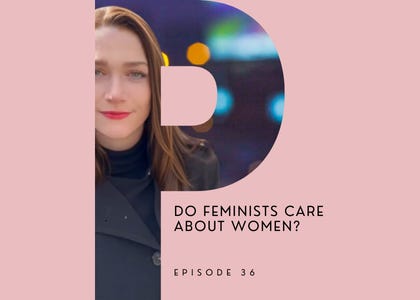





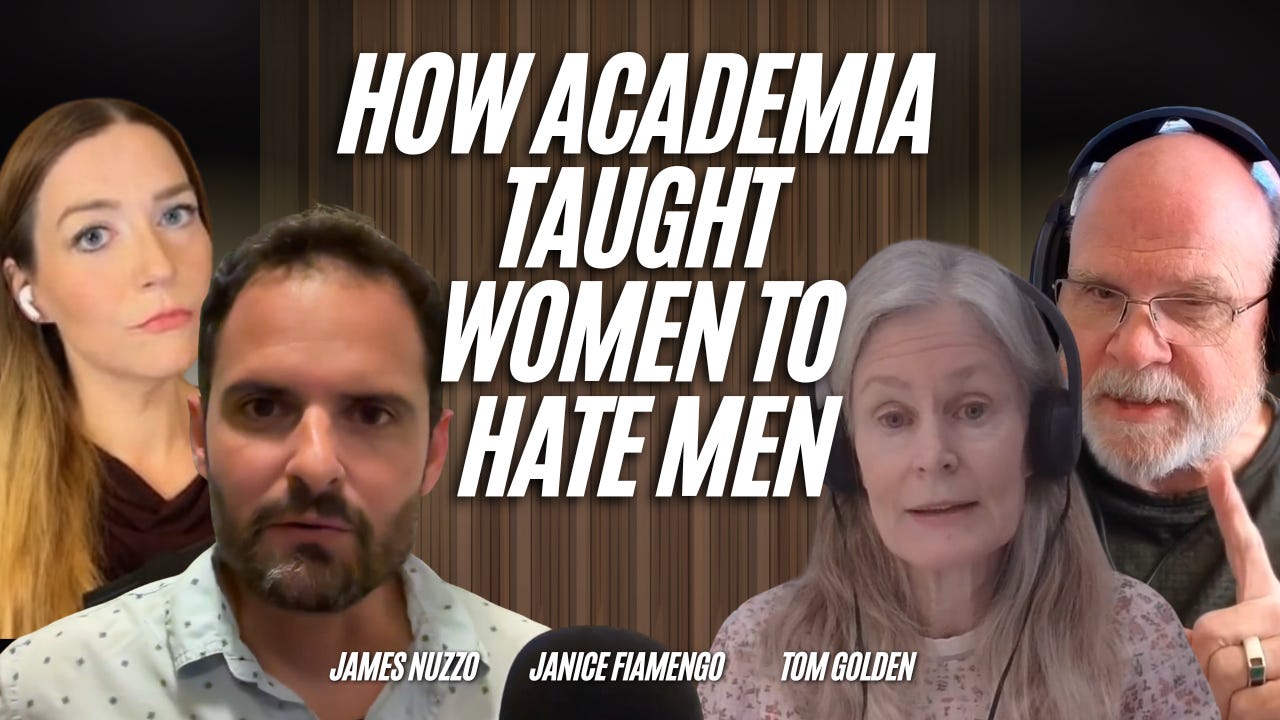

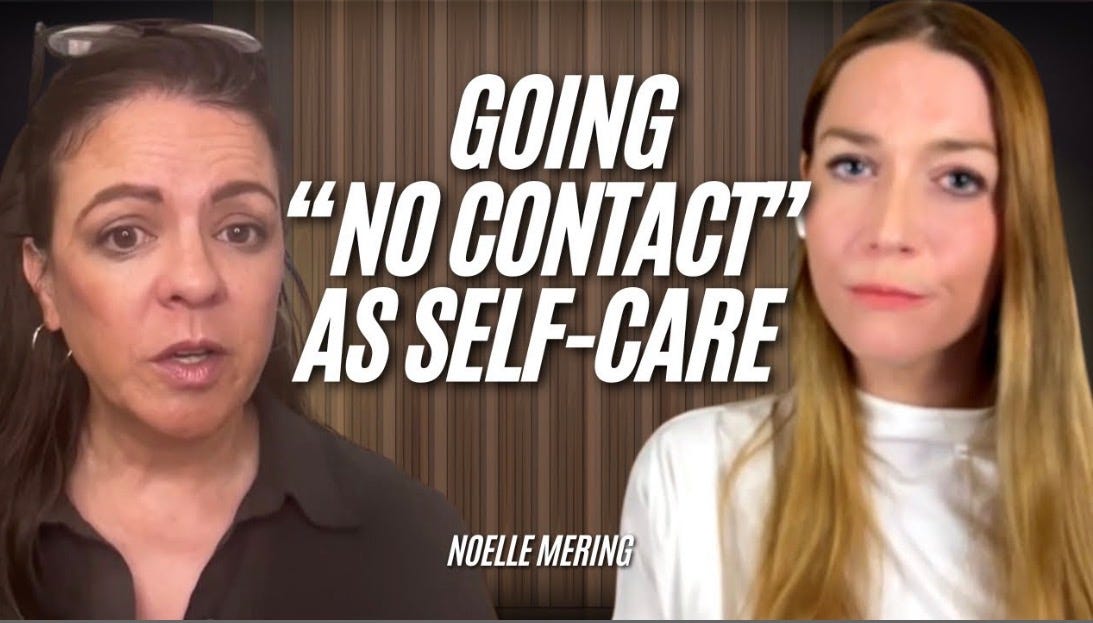

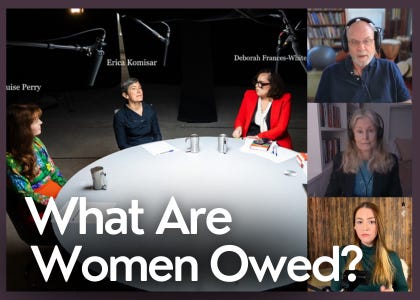
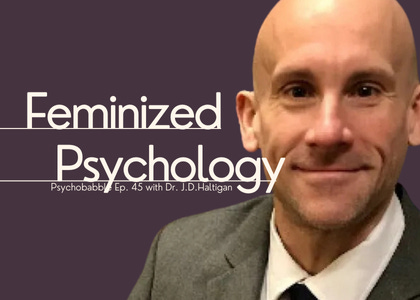

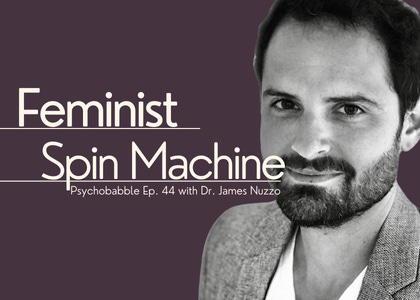
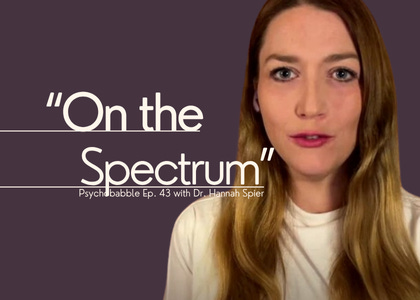


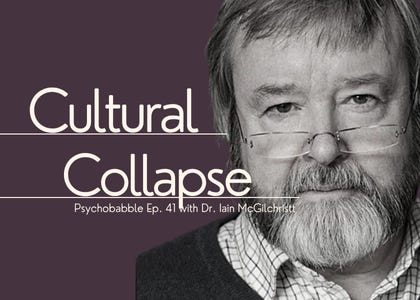



found you through Disaffected. great podcast. btw could you re-upload the first 11 episodes? they are broken